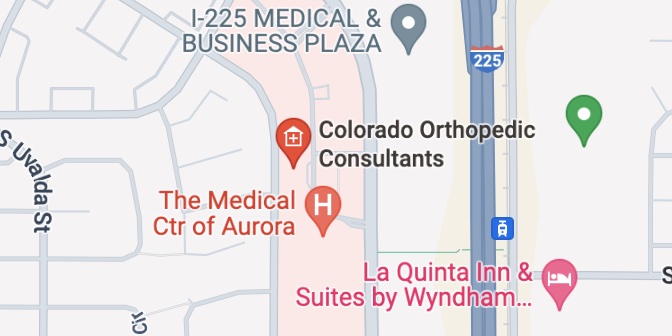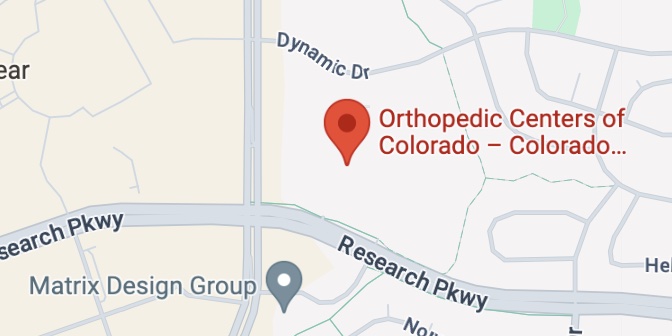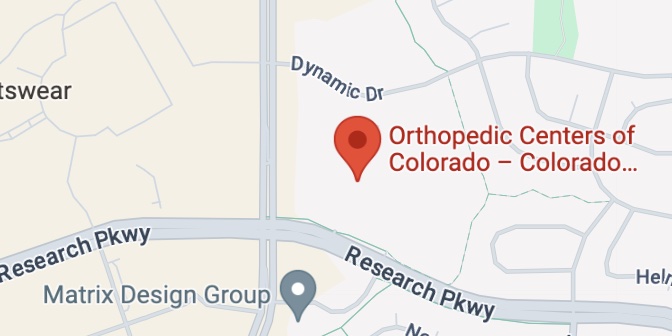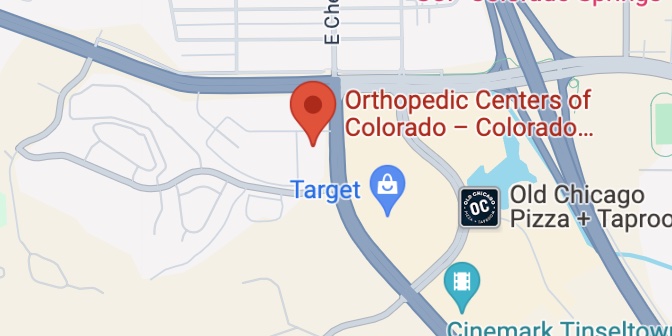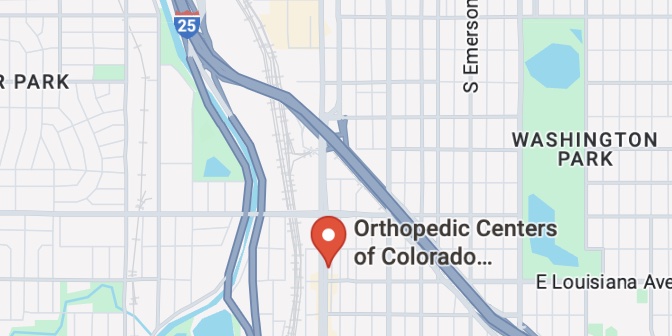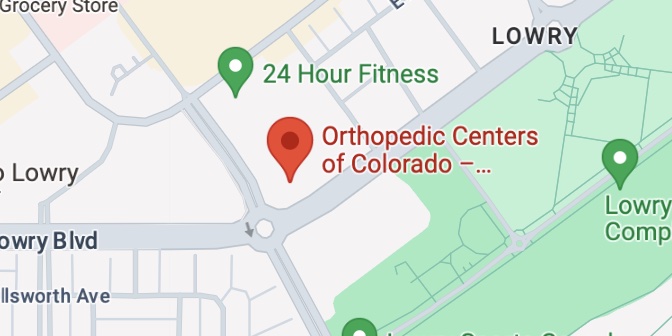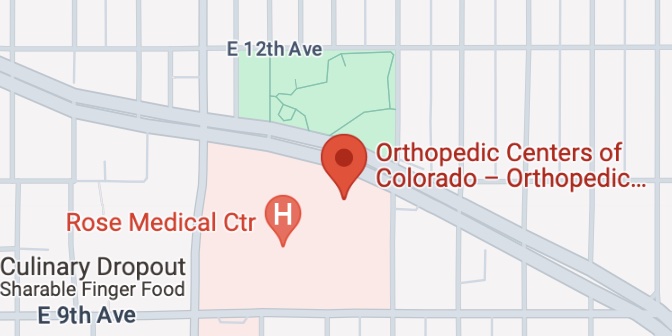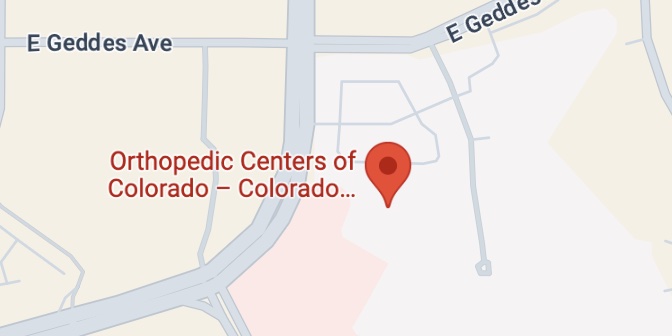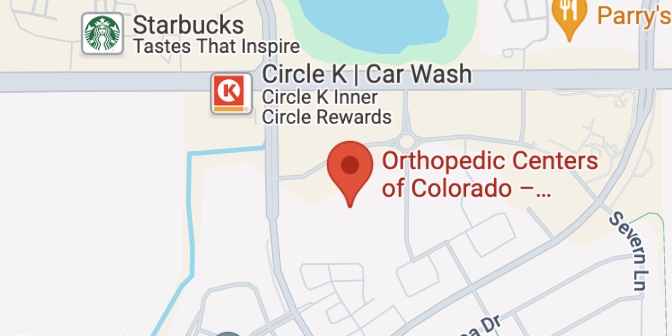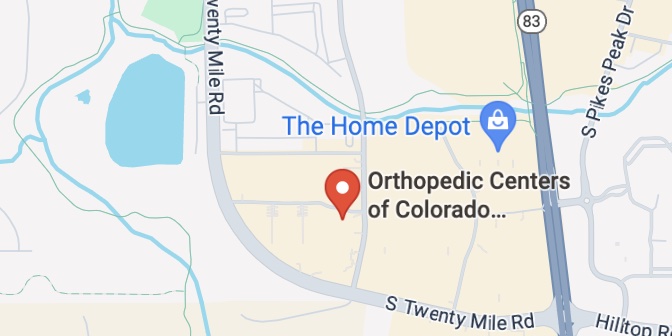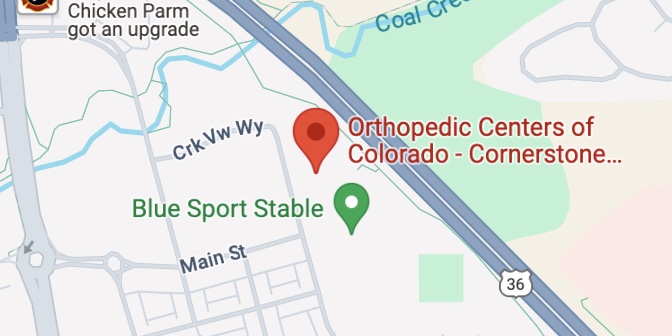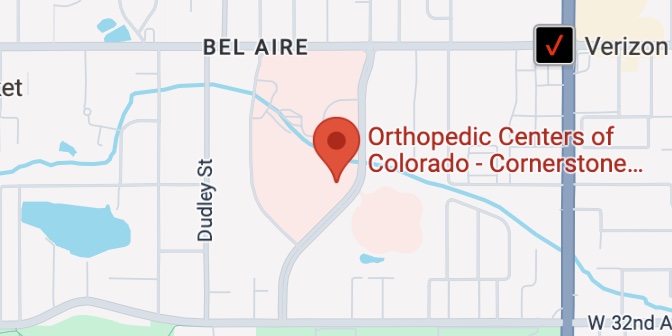Neck, Back & Spine Center of Excellence
When it comes to musculoskeletal health, finding a trusted and experienced orthopedic specialist is crucial. The Orthopedic Centers of Colorado team of dedicated experts specializes in comprehensive care for the neck, back, and spine, ensuring that you receive the highest quality treatment tailored to your unique needs. Whether you’re seeking relief from chronic pain, recovering from an injury, or exploring preventive measures, our dedicated team is committed to guiding you on your journey to improved musculoskeletal health.
Schedule Now!
Click below to schedule
an appointment
Comprehensive Care
Comprehensive Assessment: We conduct thorough evaluations to understand the unique aspects of your condition, enabling us to provide precise and effective treatments.
Multidisciplinary Approach: Our team collaborates across disciplines to ensure that you receive a holistic and integrated approach to your orthopedic care.
Patient-Centered Care: Your well-being is our top priority. We involve you in the decision-making process, empowering you to actively participate in your treatment plan.
Advanced Technology: We leverage state-of-the-art diagnostic tools and surgical techniques to deliver the highest standard of care.
Neck Health Expertise: Our orthopedic specialists excel in diagnosing and treating a wide range of neck conditions. Whether you’re experiencing discomfort, pain, or limited mobility, our team is equipped with the knowledge and skills to address issues such as cervical disc herniation, neck arthritis, and nerve compression.
Back Care Excellence: Back pain can significantly impact your daily life, but with our expertise in orthopedic back care, relief is within reach. Our specialists are experienced in managing conditions such as lumbar disc herniation, spinal stenosis, and sciatica. From conservative approaches to surgical interventions, we prioritize evidence-based treatments to alleviate pain, improve function, and enhance your overall quality of life.
Spine Health Mastery: A healthy spine is essential for maintaining mobility and overall well-being. Our orthopedic spine specialists are at the forefront of advancements in spine care. We specialize in addressing conditions like scoliosis, degenerative disc disease, and vertebral fractures. Whether you require non-surgical interventions or complex spinal surgery, our team is dedicated to restoring your spine’s health and function.
Neck, Back & Spine Procedures & Conditions Treated
We treat all neck, back & spine injuries, below are a few of the more common conditions:
-
Ankylosing Spondylitis
-
Arthritis – Back & Neck
-
Cauda Equina Syndrome (CES)
-
Cervical Fracture
-
Deformity Correction
-
Degenerative Disc Disease
-
Disc Replacement Surgery
-
Herniated Disc
-
Injections
-
Kyphosis
-
Lower Back Pain
-
Muscle Injuries/Disorders
-
Myelopathy
-
Neck Sprain
-
Osteoporosis
-
Radiculopathy
-
Sciatica
-
Scoliosis
-
Spinal Decompression Surgery
-
Spinal Fusion Surgery
-
Spinal Stenosis
-
Spine Fractures & Surgery
-
Spondyloarthritis/
Spondyloarthropathy -
Spondylolisthesis
Patient-Centered Care
Our patient-centered approach is built on communication, collaboration, and compassion. We understand that every patient is unique, and we take the time to listen to your concerns, answer your questions, and involve you in decisions about your care. Our goal is not just to treat conditions but to empower you to lead an active, pain-free life.
Our dedicated team of healthcare professionals strives to create a compassionate and supportive environment where you feel heard, respected, and actively involved in your care decisions. Your health and satisfaction are our top priorities, and we are here to collaborate with you on a personalized care journey that respects your dignity and empowers you to achieve the best possible outcomes.

Neck, Back & Spine Physicians
Neck, Back & Spine Locations




